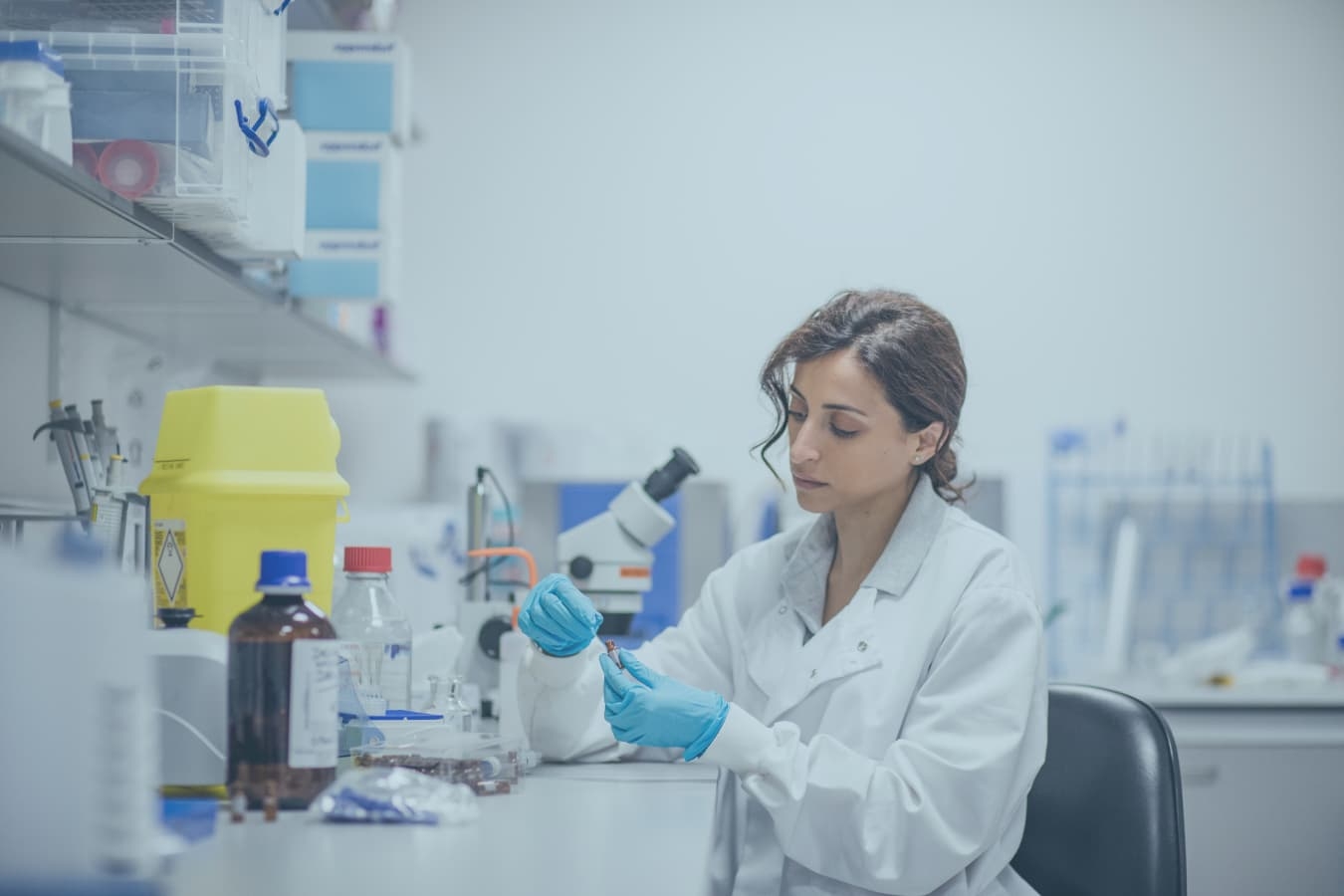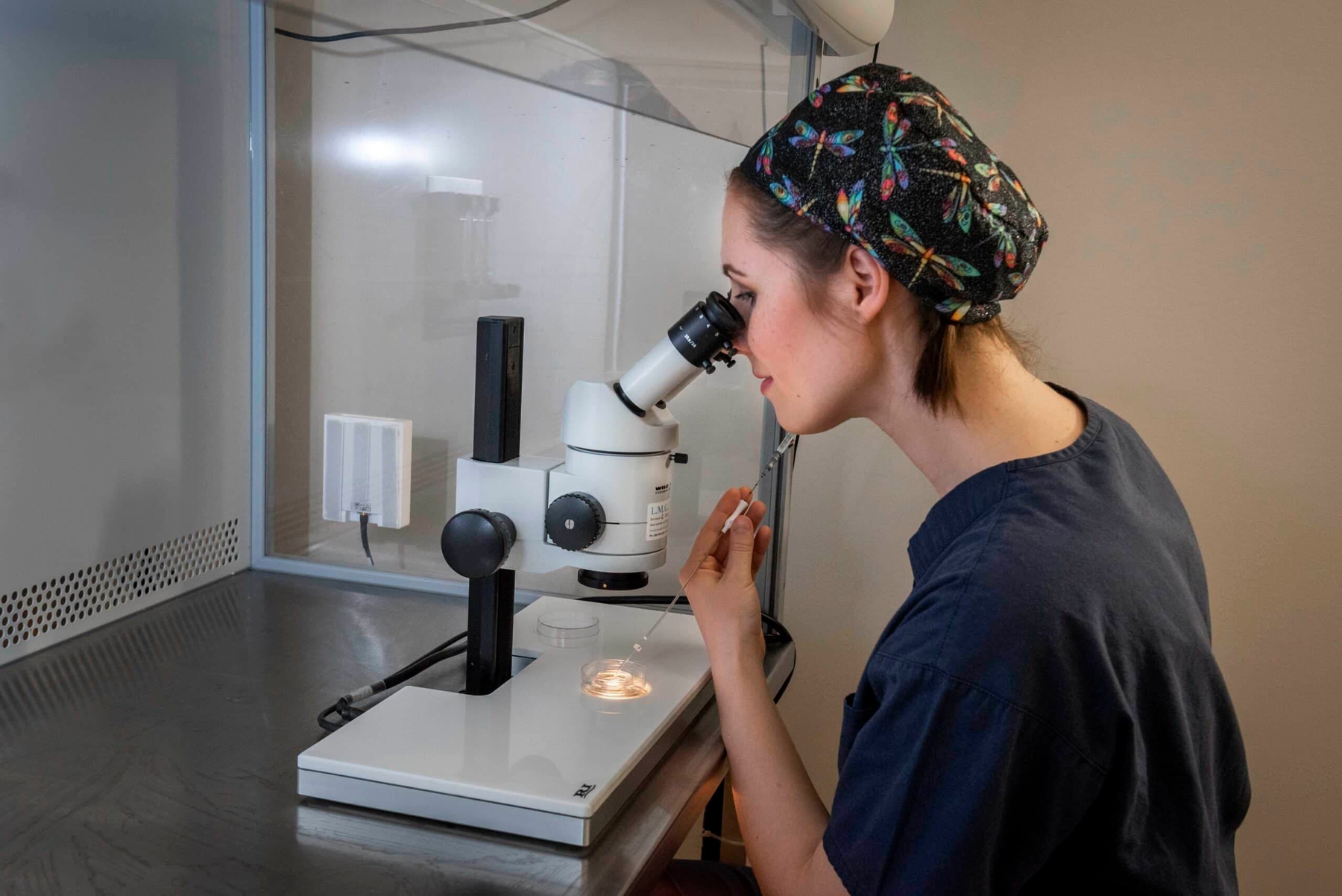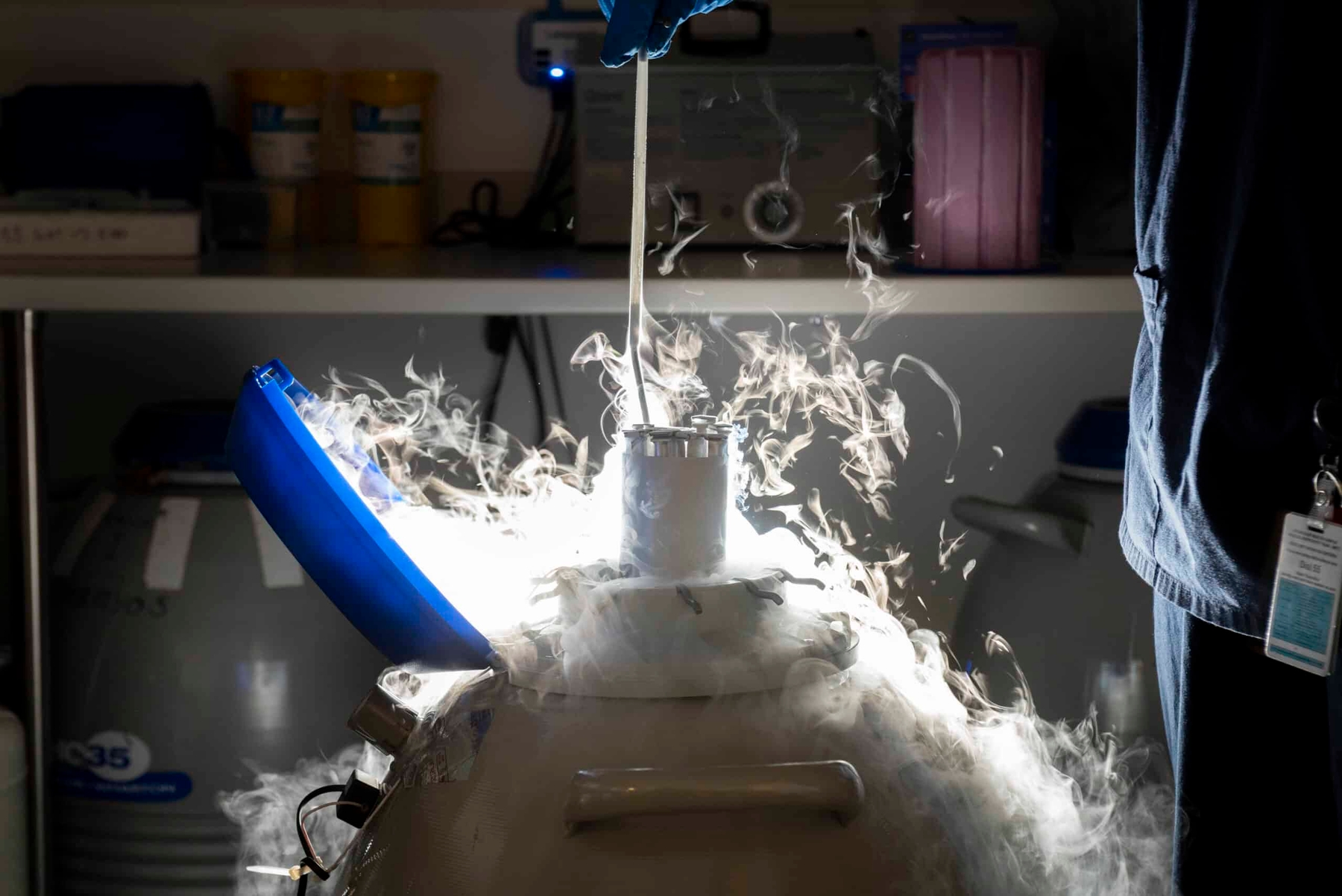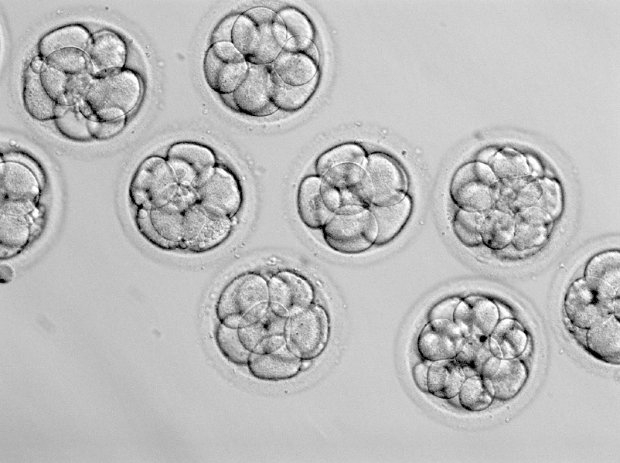Resources
Why Ovulation Induction is Used as a Fertility Treatment for Patients with PCOS

Polycystic Ovary Syndrome (PCOS) is a common condition affecting many women, often leading to fertility issues due to irregular or absent ovulation. However, there’s hope: fertility treatments like ovulation induction offer an effective pathway to pregnancy for women living with PCOS. At Fertility North, we work closely with you to determine if ovulation induction is the right approach for your individual situation.
How PCOS Affects Ovulation and Fertility
PCOS is among the leading causes of infertility, primarily because it disrupts ovulation. High androgen and insulin levels associated with PCOS interfere with normal menstrual cycles, making ovulation unpredictable or completely absent. Without regular ovulation, conception becomes significantly more challenging.
It’s important to understand that experiencing difficulty conceiving due to PCOS is common. Fortunately, many effective treatments are available, and ovulation induction is typically one of the first and most successful options.
What Is Ovulation Induction?
Ovulation induction involves using medications to stimulate the ovaries, encouraging them to mature and release eggs regularly. This method is particularly beneficial for women who experience irregular ovulation or none at all.
Typically, the process begins with medication taken orally or via injections at the start of your menstrual cycle. Throughout this process, Fertility North specialists closely monitor your body’s response through blood tests and ultrasounds, allowing precise timing for ovulation and optimising your chance of pregnancy.
Why Ovulation Induction Helps Women with PCOS
The main fertility issue with PCOS is irregular or absent ovulation. Ovulation induction directly addresses this by helping the ovaries release an egg regularly, increasing your chances of conception each cycle. For many women with PCOS, ovulation induction is the initial fertility treatment recommended before exploring more advanced options like IVF.
Lifestyle changes—such as diet, exercise, and weight management—are often recommended alongside medication to improve fertility outcomes further. Even moderate weight loss can restore normal ovulation for some women with PCOS, enhancing the effectiveness of fertility treatments.
Ovulation Induction Medications & Process
Letrozole is one of the primary medications used for ovulation induction in patients with PCOS, and it is often the first choice due to its effectiveness in improving pregnancy rates with a lower risk of multiple pregnancies compared to medications like clomiphene.
Medications work by prompting hormonal changes that encourage ovarian follicles to mature and release eggs. Your Fertility North specialist will carefully monitor follicle development through ultrasound and hormone testing, ensuring optimal safety and effectiveness.
Once a mature follicle is ready, a trigger injection may be given to precisely time ovulation, increasing the chances of successful fertilisation. Timed intercourse or intrauterine insemination (IUI) will then be advised, ensuring the best chance for conception.
Ovulation induction is considered safe, though it’s essential to understand potential risks, including a slightly increased chance of twins and, in rare cases, ovarian hyperstimulation syndrome (OHSS). Fertility North’s careful monitoring significantly reduces these risks, prioritising your safety throughout the treatment process.
Success Rates, Expectations, and Next Steps
Ovulation induction has shown high success rates among PCOS patients, with many achieving pregnancy within several treatment cycles. Studies indicate that about 70-75% of women with PCOS who undergo ovulation induction will conceive within 6 to 9 cycles.
Patience is key—while some women conceive quickly, others may need several attempts. At Fertility North, we’ll support you emotionally and medically throughout the entire process, ensuring you’re informed and comfortable with every step.
If ovulation induction alone isn’t successful after several cycles, we’ll discuss alternative treatments, including advanced options like IVF or injectable gonadotropins. No matter the path you need to take, Fertility North provides comprehensive care tailored to your unique needs.
To learn more about Ovulation Induction, please reach out to Fertility North today.
Frequently Asked Questions
Can I get pregnant if I have PCOS?
Yes! Most women with PCOS can achieve pregnancy with proper treatment, lifestyle modifications, and medical support such as ovulation induction.
How does ovulation induction work for PCOS?
Ovulation induction medications stimulate your ovaries to release eggs, significantly improving your chances of conception with timed intercourse or IUI.
Is ovulation induction the same as IVF?
No, ovulation induction is simpler, focusing on stimulating natural ovulation. IVF involves fertilising eggs outside the body and transferring embryos back into the uterus.
What medications are used to induce ovulation in PCOS?
A common medication includes letrozole, which is effective in stimulating ovulation safely.
Do I need to lose weight before trying ovulation induction?
Weight loss isn’t mandatory but can significantly improve treatment effectiveness. Fertility North specialists will guide and support you in combining lifestyle changes with medical treatments.
If you’re exploring fertility options for PCOS, Fertility North offers compassionate, expert guidance throughout your treatment. Contact us today to discuss how ovulation induction could help you achieve your dreams of parenthood.




